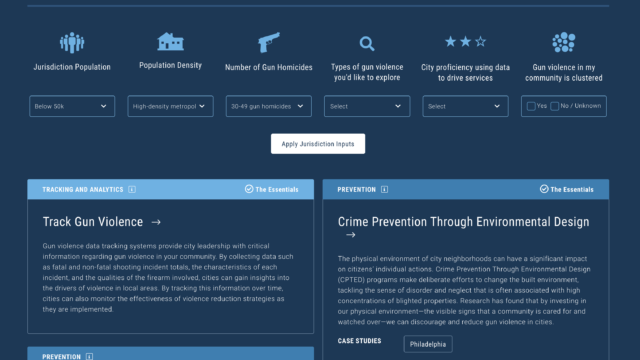Police Violence
Police Violence
What is the problem?
Every year, police in America shoot and kill more than 1,100 people, and Black people are victims at a disproportionate rate. Curbing this gun violence requires confronting America’s history of racism, reimagining the role of police, and implementing policies that reduce police gun violence.
Gun violence is a uniquely American epidemic, as is gun violence by police. In addition to the loss of life and the family members and survivors’ pain, shootings by police have a uniquely corrosive impact on the nation: patterns of police violence dramatically reduce public confidence in police and lead some community members to see them as part of the problem.1Sixty percent of civilians (and 79 percent of Black civilians) perceive police killings of Black Americans as signs of a broader problem rather than isolated incidents. Rich Morin et al., “Behind the Badge,” Pew Research Center, January 2017, https://assets.pewresearch.org/wp-content/uploads/sites/3/2017/01/06171402/Police-Report_FINAL_web.pdf. Similarly, following the police killings of Michael Brown, Eric Garner, and Walter Scott, and the related protests, public confidence in the police hit an all-time low of 52 percent. 2020 survey data is not yet available. Jeffrey M. Jones, “In U.S., Confidence in Police Lowest in 22 Years,” Gallup, June 19, 2015, https://news.gallup.com/poll/183704/confidence-police-lowest-years.aspx. The fear sown by these shootings makes neighborhoods less safe since law enforcement cannot do its part in preventing violent crime without the assistance of the community.
Any policing strategy must include these fundamental principles:
- A strong legal standard barring unnecessary police use of force
- De-escalation, reducing officer bias, and a priority for positive law enforcement-community relationships through procedural justice
- Tools for officers at risk of misconduct
- A thorough and independent system for reviewing use of force incidents, and ensuring abusive officers can be disciplined and prosecuted
- Transparency about policies, procedures, and the use of force
Why is it an issue?
America’s gun violence epidemic includes gun violence by police.
As we have long heard from communities of color, police violence is gun violence. Indeed, 92 percent of the deaths of civilians caused by police are with a firearm,1Everytown Research analysis of 2019 to 2023 Mapping Police Violence data (accessed February 21, 2024). and Black people are the victims at a disproportionate rate—they are nearly three times more likely to be shot and killed by police than white people.2Everytown Research analysis of Mapping Police Violence data, 2019 to 2023, and US Census, “National Population by Characteristics, 2010–2019.” Curbing this gun violence and the disproportionate impact it has on Black and brown communities will require the country to confront its history of racism and structural inequity. It will also require local stakeholders to reimagine the role of police and community in promoting public safety. Every jurisdiction in the country must have policies that reduce police gun violence, including strong guardrails on when police may use force against civilians, ensuring police are held accountable when force is used, and prioritizing de-escalation, dignity, and respect.
By the numbers
1.1k
Every year, police in the US shoot and kill more than 1,100 people.
92%
92 percent of the deaths of civilians caused by police are with a firearm.
3x
Black people are the victims at a disproportionate rate—they are nearly three times more likely to be shot and killed by police than white people.
Featured Resources

Alternative Dispatch Programs
Creating alternative dispatch options that connect people in crisis with mental health services is key in preventing police gun violence.
Community-Led Public Safety Strategies
Communities affected by gun violence need immediate and locally driven interventions in addition to larger scale policy reform.

Summer Youth Employment Programs for Violence Prevention: A Guide to Implementation and Costing
Investing in an SYEP is a cost-effective way to help prevent violence in cities.
All Resources
Police Violence
All Resources
How Guns Fuel Violence Against Transgender People in America
Black trans women are bearing the brunt of a crisis of gun violence, often at the hands of perpetrators who are prohibited from owning guns.
Report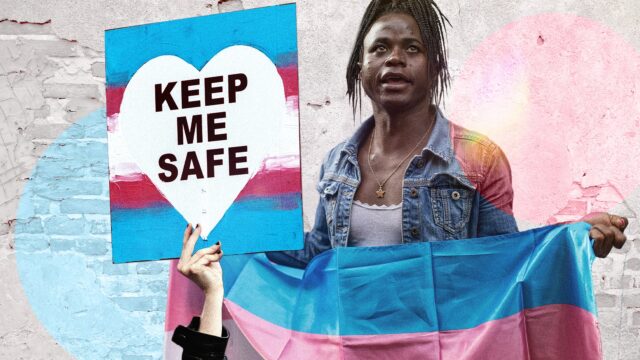
The Impact of Gun Violence on Latinx Communities
Latinx people in the United States are dying from gun violence every day and at rates disproportionate to their white peers.
Fact SheetEl impacto de la violencia con armas de fuego en las comunidades latines
Las personas latines en los EE UU mueren a causa de la violencia armada en tasas desproporcionadas con respecto a los blancos.
Fact SheetInvisible Wounds: Gun Violence and Community Trauma among Black Americans
Persistent gun violence is harming too many Black communities in the U.S., contributing to individual, family, and community-level trauma.
Report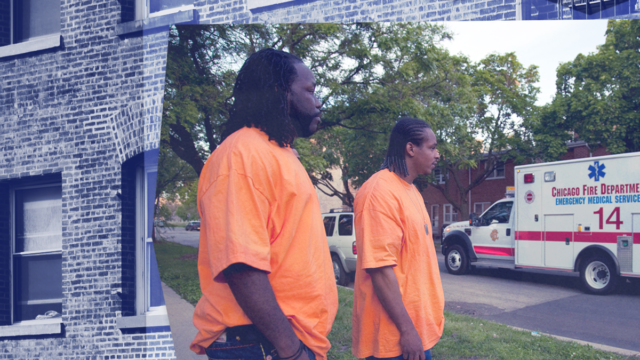
Community-Led Services for Survivors
Community-led services can assist survivors by responding to incidents of gun violence in their community and providing ongoing care.
Fact Sheet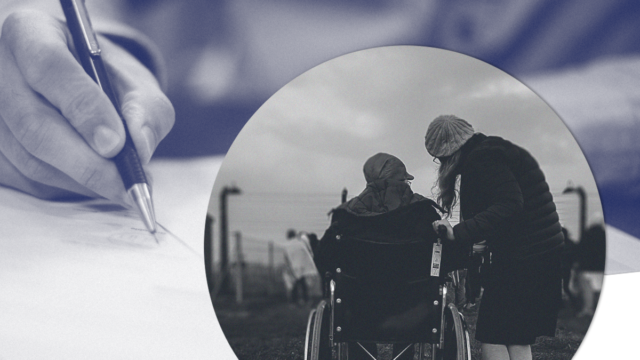
A Deadly Year in Cities — And How Policymakers Can Respond
While the long term effects of COVID-19 still aren’t fully clear, it is evident that cities have experienced historic levels of violence.
Fact Sheet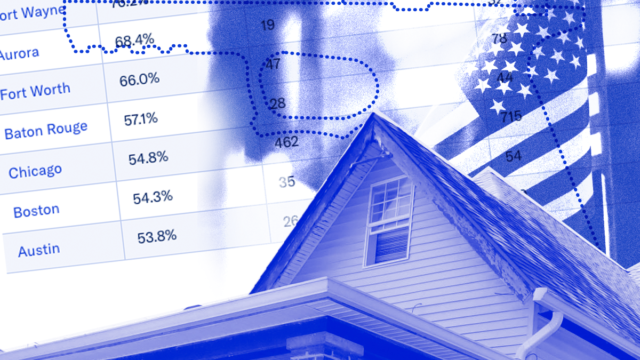
Gun Violence and the Police
Every year, police in America shoot and kill more than 1,000 people.
Fact Sheet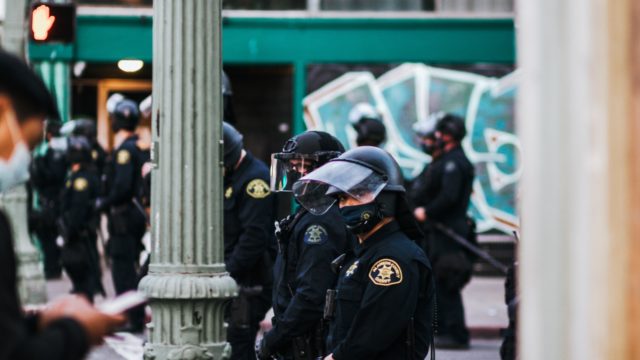
City Gun Violence Reduction Insight Portal
CityGRIP is an online clearinghouse of data-informed gun violence reduction strategies.
Data Tracker